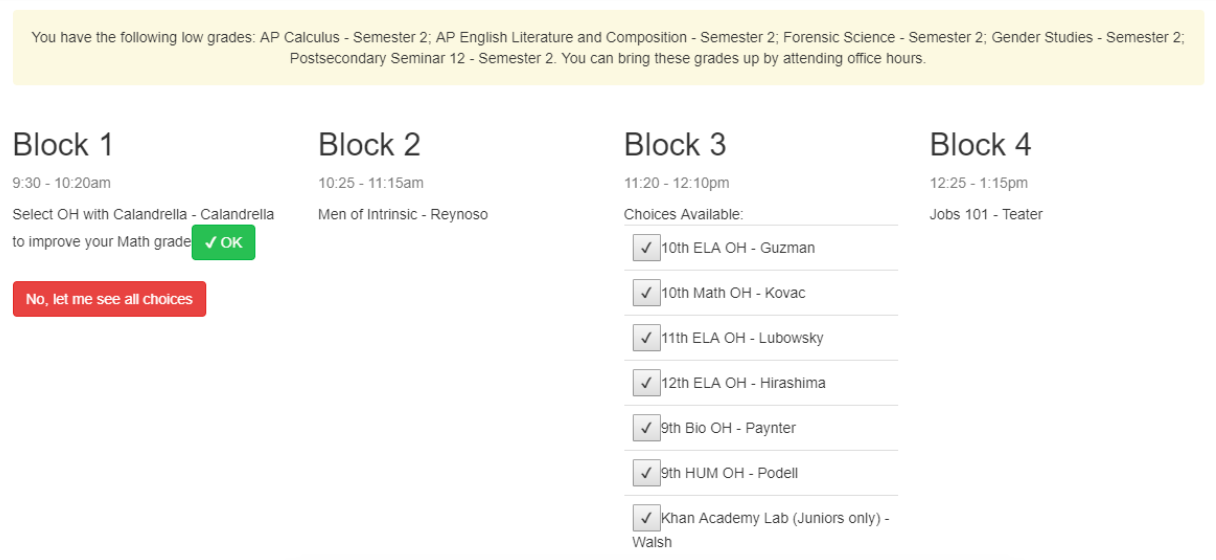Building Student Agency With a “Nudge”

Intrinsic Schools is a charter school network in Chicago with one 7th-12th grade campus and currently working to open a new school in Fall 2019. As we mentioned in an earlier newsletter, this year we’ve worked together on a number of innovative design and R&D projects, including the implementation of “C Day.” We believe that in order to cultivate agency, students need multiple opportunities to make choices and learn from those choices. On C Day, students follow different schedules based on their needs, interests, and goals. There are academic blocks during which students can opt into study hall, study groups, peer tutoring, and office hours. There are enrichment blocks for students to explore their interests, develop passions (e.g., Spoken Word, Mosaics, Culinary Arts, etc.), and/or to become student leaders. Students choose academics blocks weekly, and they can choose to remain in an enrichment activity all year or choose a new one each semester.

The Intrinsic team—together with Transcend—has been engaging in rapid research cycles to study and improve the C Day model. To support students to leverage resources to meet their academic goals, Intrinsic leaders Sugandhi Chugani and Harpreet Gill developed a portal where students can choose their academic blocks each week based on their needs. When they found that students were not always choosing blocks aligned to their most pressing academic needs, they decided to develop a “nudge” feature. This feature allows students to choose an automatically-selected office hours assignment based on missing assignments and low scores; but it also allows them to override that choice if they wish. Thus, the “nudges” are thought to help students and the school account for areas where students may be behind while still offering choice. In the future, this nudge—as well as other scaffolds—could be removed as students build their ability to choose options that help them meet their goals.

his test—in its 4th week—has resulted in two interesting early observations. First, more and more students are choosing the nudge each week, which has increased the number of students choosing office hours with specific teachers in subjects where they need help. Second, they found that the overall number of students needing a nudge is decreasing, which may be due to students catching up on missing work or getting help with challenging concepts. Although it’s too early to make any conclusions, we believe that this type of rapid cycle testing can help schools continuously improve. To learn more about C Day, check out this slide deck. And to check out a demo version of their C Day portal, click here.
Follow the conversation online at #TranscendEdu!
Transcend supports communities to create and spread extraordinary, equitable learning environments.

